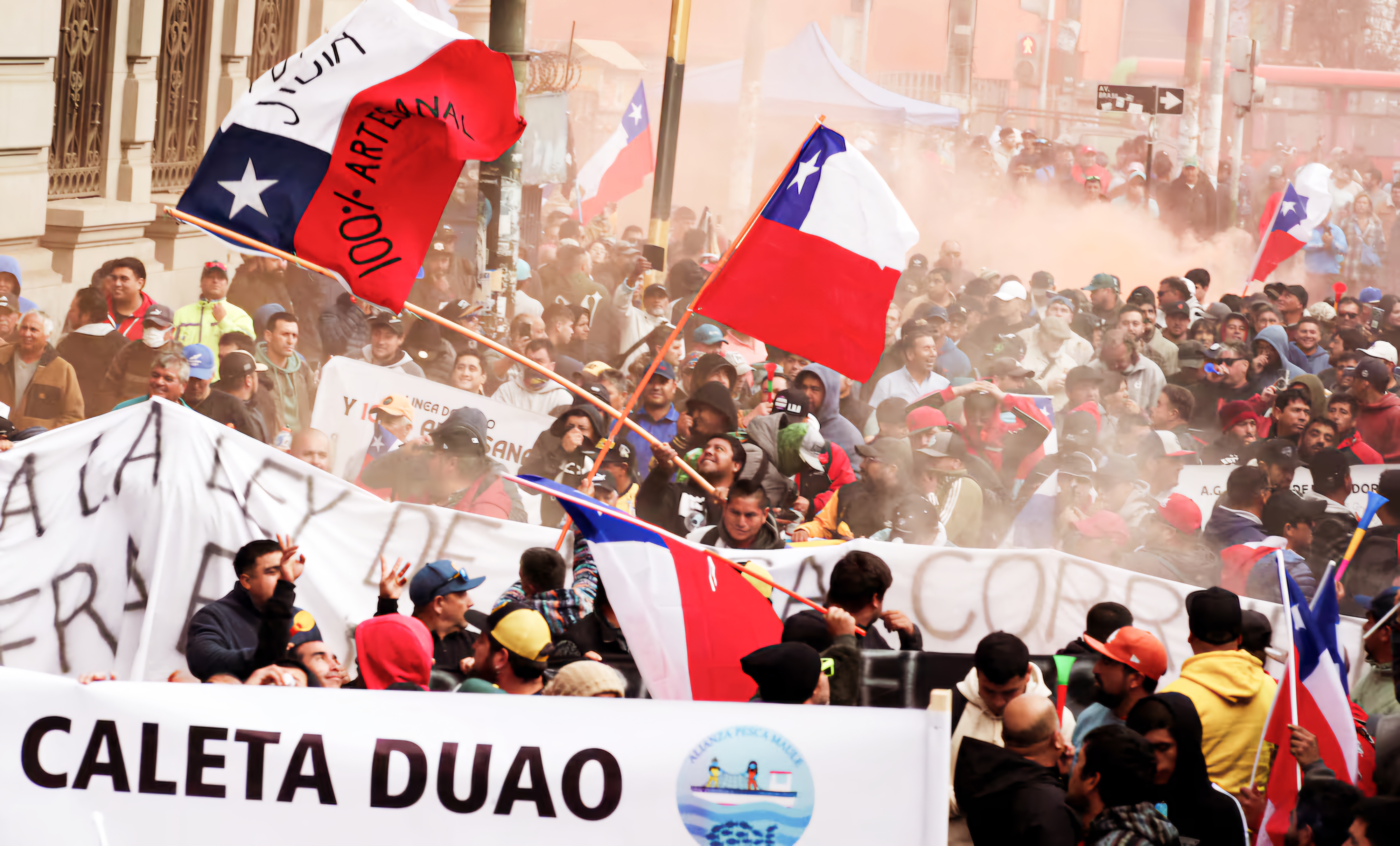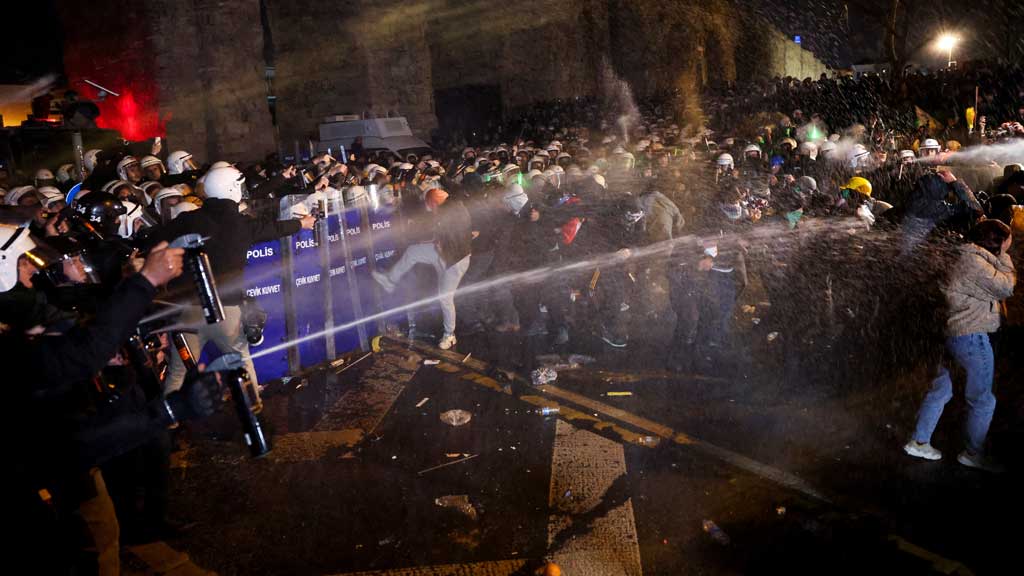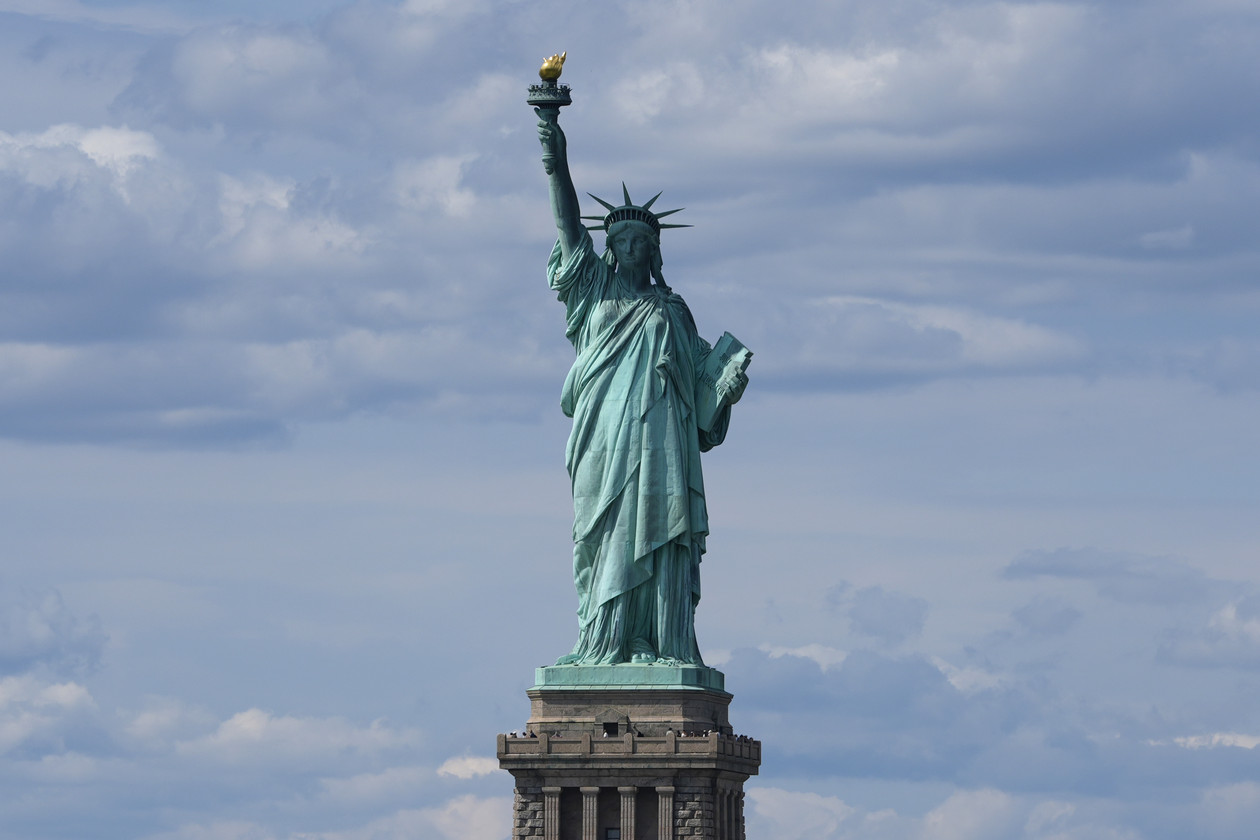Tensions Erupt in Valparaiso as Fishing Law Vote Delay Sparks Protests
- by Chris White, RNG247
- about 9 months ago
- 326 views

Chaos erupted outside Chile's Congress on Tuesday as police clashed with thousands of demonstrators protesting the delayed vote on a contentious fishing law designed to redistribute quotas between artisanal and industrial fishers. The protest turned violent when demonstrators attempted to breach security barriers, prompting police to deploy tear gas and water cannons to disperse the crowd.
The initial calm of the day unraveled into chaos after a Senate commission postponed the critical vote on the law, which has sparked fierce debates among fishermen. Many artisanal fishers argue that the law unfairly favors large industrial companies at the expense of small-scale operators.
“This law is about survival for us,” said Hugo Poblete, a union leader representing artisanal fishers in Quintero. Earlier, he had joined fellow fishermen in front of Congress, intently watching the Senate finance commission debate through a large screen. “The percentages for our catches have been slashed as the bill moves through the Senate,” Poblete added, referring to previous provisions that allocated a favorable 70% share of the hake quota and 90% of cuttlefish to artisanal fishers.
As tensions soared, police struggled to contain the demonstrators, who rallied under banners proclaiming, "The Sea is Not For Sale.” The clashes escalated when protesters managed to breach a gate surrounding the Congress, setting off a swift police response that involved riot gear and the use of non-lethal crowd control measures. At least one officer sustained injuries during the confrontation, and several protesters were taken into custody.
Among those rallying outside was Susana Olea, a 55-year-old artisanal fisher from the southern town of Lebu, who voiced her concern about the broader impact of the fishing law. “It’s not just about fishers; it’s everyone connected to the sea,” Olea remarked, underscoring the ripple effect that declining fish populations and restricted quotas have had on her community. “Three years ago, we were busy preparing bait. Now, we’re idle because there’s no Brama fish,” she lamented.
The industrial fishing sector, represented by Sonapesca, did not respond to inquiries regarding the protests and legislative turmoil. With the Senate's decision to delay the vote, it remains uncertain when or if the fishing law will pass, leaving artisanal fishers steadfast in their fight for equitable fishing rights. They argue that without significant changes, their traditional livelihoods face extinction as they continue to demand a 100% allocation of cuttlefish quotas to revive their industry.
As negotiations and debates persist, the scene outside Congress embodies the intense struggle over Chile’s fishing industry, where the livelihoods of countless families hang in the balance.
















0 Comment(s)